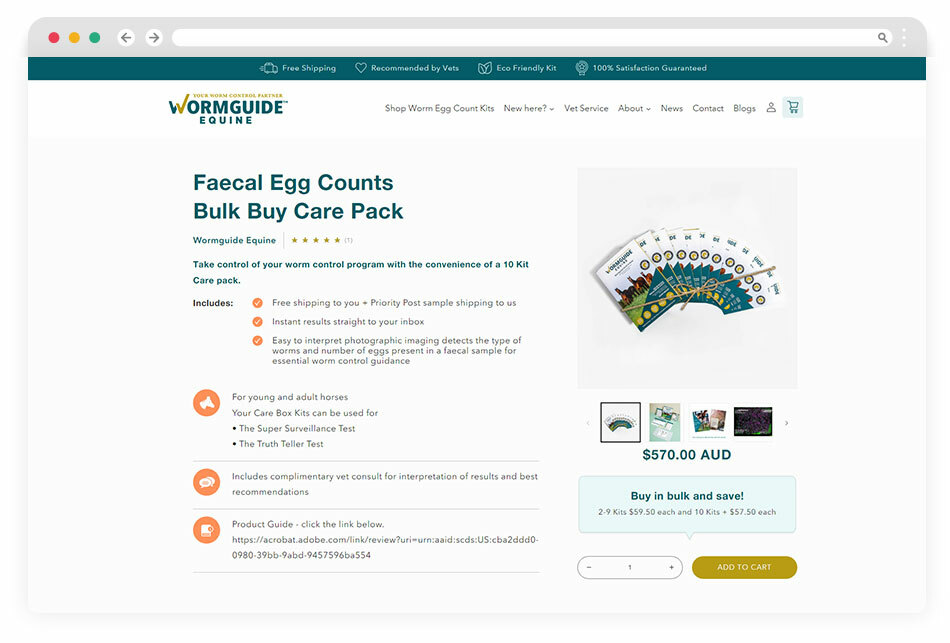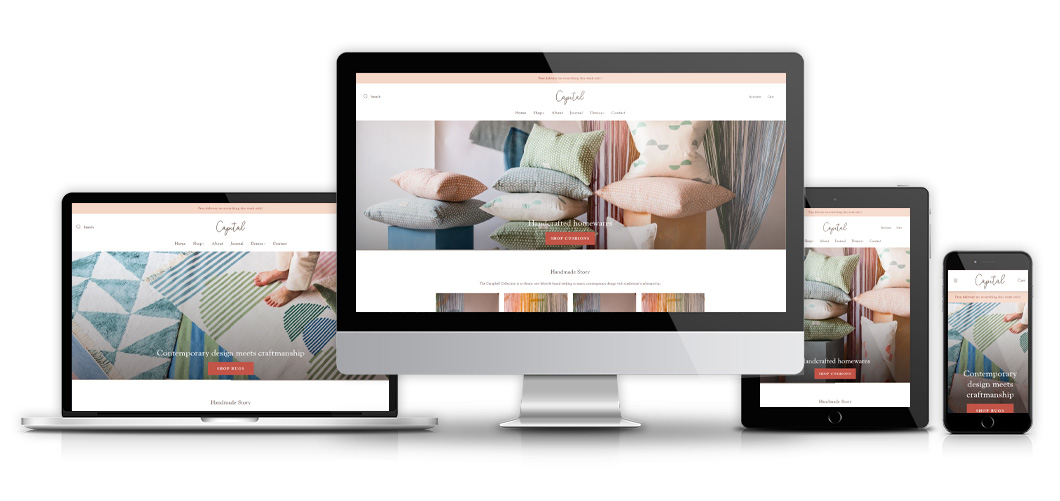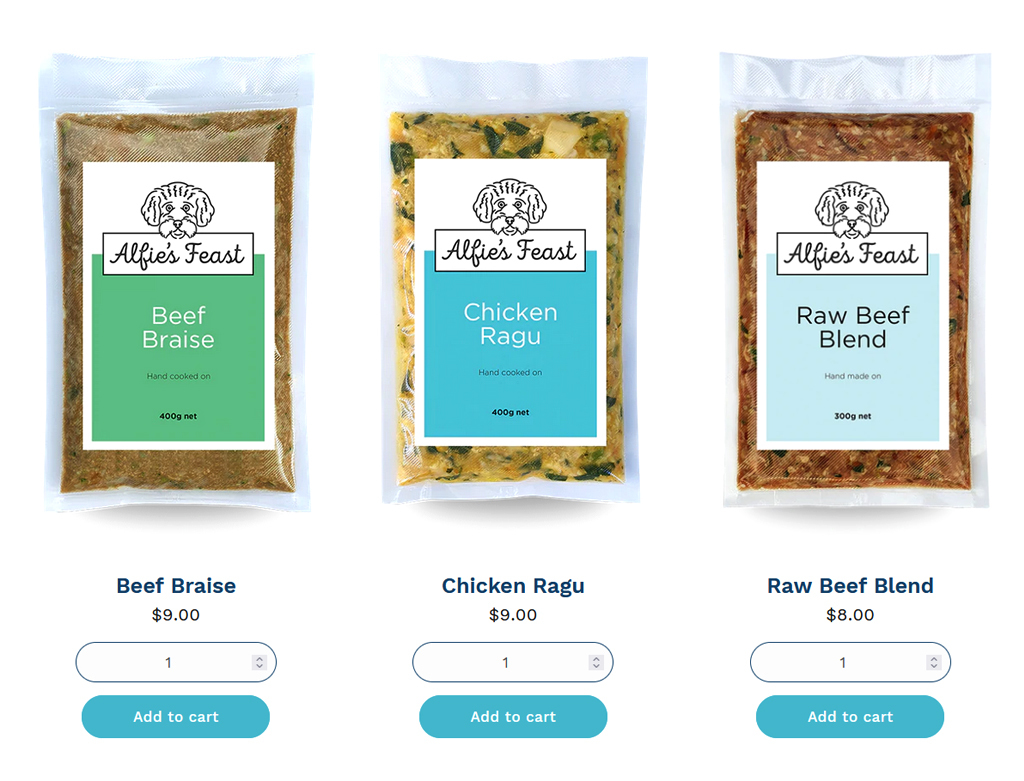I hope you enjoy reading this blog post.
If you want to discuss your website, we're here to help! Talk to Johannah.

Why Your E-Commerce Website Needs A Blog
We have put together five main reasons why your e-commerce website needs a blog.
A lot of things should be considered when maintaining a high performing e-commerce website. One important element you must consider is creating and maintaining a blog. A place to share articles, tips, resources or how to videos. Basically any kind of content to add value to your customers. Fresh regular content helps your website remain relevant, allowing you to build your brand voice and increase awareness of you and your products.
1. Search Engine Optimisation
A well written blog ensures that there is educative content that can be indexed by search engines. It ultimately helps your online store be more searchable by related topics, hence generating more visitors to your site.
Blogs help enhance the quality of SEO since it points appropriate answers of customer inquiries to your website. Blog posts that use quality SEO tactics such as targeting relevant keywords, placing them strategically on titles, and writing appropriate meta data descriptions give your e-commerce site the opportunity to rank in search engines—and this is always good for business! If this term is sounding foreign, read our SEO services to help understand it more.
2. Increase Traffic on your Website
As a business owner, your goal is to pique the interest of your target market, so that they will visit your site and increase your chances of making a sale. Posting your blog links in social media increases your chances to accomplish that goal.
Create a blog which is catchy, informative, and up to date. Posting these blog links in your store’s social media accounts will serve as an ad for your website. Depending on how useful your blogs are to the readers, the blog link will generate clicks and drive visitors / traffic to your website, which is a big step towards increasing your sales!
3. Brand Identity
There are numerous steps into starting up your brand identity. You’ll have to think about your niche, your market, a catchy brand name, and most especially—building your brand identity.
When you think about a product, a specific brand usually comes to mind. For example, when thinking about carbonated drinks or soft drinks, you’ll probably think about Coca Cola. Or when thinking about toothpaste, you’ll immediately think about Colgate. These brands established their identity throughout the years by executing effective marketing strategies, which helped them gain the trust and loyalty of their customers. Same can be done with e-commerce websites. A blog is another tool to use in establishing your identity in a world full of rival brands and similar products.
Blogging provides a voice to your business. You can use it to build your business’s unique personality which separates you from your competitors. Things to consider are what do you want to be known for that are also important to your customer? How can you give personality and life to your brand through your writing? Your initial blogs could include answers to the basic identity questions: 1- who are you, and 2- what value your product or service gives to your customers. These will be ingrained in your readers’ minds as you write more and more articles on your website. In time, your readers may become your customers and eventually, your brand ambassadors!
4. Build an Online Community
If you keep posting helpful and relative blogs consistently, your community of readers which are originally your searchers will keep going back to your site for new information. The comments that your viewers leave in your blog will spark a meaningful conversation with like minded people about the topics.
Blogs that are personalized and relatable are the ones readers usually react to. Make your blogging as inclusive and interactive as possible, specially when you are trying to build a community of brand supporters. Write about how your product contributes or solves a problem in their life. Encourage comments and conversations within your blog as these will also help in making your blog rank higher in related topics.
5. Enhance Your Writing Skills
As important as having including a blog in your e-commerce website is, making sure your content is relevant and easy to read it also vital. Writing them doesn’t just keep you well connected to your business and your brand, but also helps develop your communication skills.
Here are some factors to consider when you are starting to write a blog for your online store:
- Your relevance. If not talking about products or services you offer, your blog should always have a connection to what your online store is offering.
- Your audience. Some blog writers are so used to using technical terms that they forget to consider who the target audience is. Basic rule is to make sure your writing style is conversational and simple. A common standard is aim for it to be understood by a high schooler! Writing like the way you talk is often a great start. Ultimately the goal is to engage your target audience so they stay on your site for longer.
- Your structure. Keep a structure which allows your audience to fully digest your blog content. The basic structure of a blog is 1-having an introduction of the topic, 2- giving more details about the topic and sub topics, and finally, summarising the main message of your blog. Structure using a hierarchy of information is also important for ranking. Google is more likely to rank your articles if they are structures logically.
- Your consistency. Decide on whether you will write a blog on a weekly or a monthly basis. This will not only help you rank higher in search engines—it will also keep your customers informed of the current trends and news about your business. This will gain more engagement to your current and future customers.
The e-commerce world is growing rapidly, hence the continued importance of having a blog for your website. You may start with simple blogs and then later evolve to longer ones and don’t forget you can also include video, images or infographics. What is important though is you start now and reap its benefits not only for your online store but also to your ranking. With all these gains (and nothing to lose), why don’t you start blogging now?
Do you need ideas to start your blogs? Read this!
Do you need step by step guidance on how to launch your ecommerce website? Click here!
Or if you’d like to have the experts handle your web design needs, contact Confetti Design here!

Johannah Barton
Johannah is founder and owner of Confetti Design, a leading Melbourne Shopify Agency. Her extensive background in fashion, interior design, sales and marketing contributes to the Agencies great ability and reputation. She creates content that helps small businesses navigate the online space helping them to consider their website as a sales tool.
Read more





